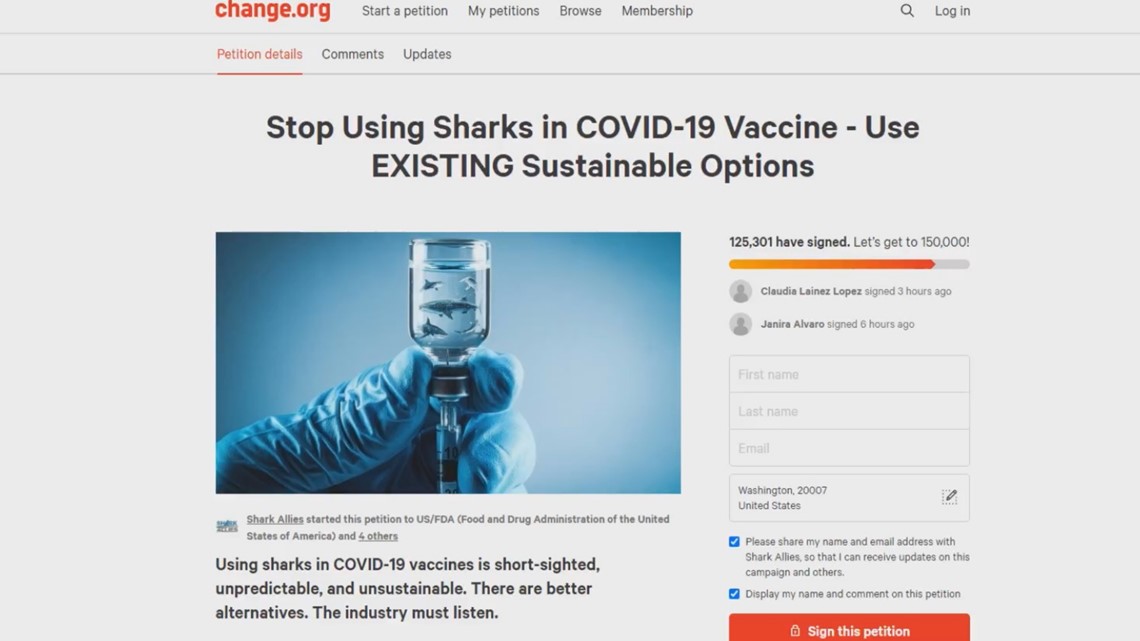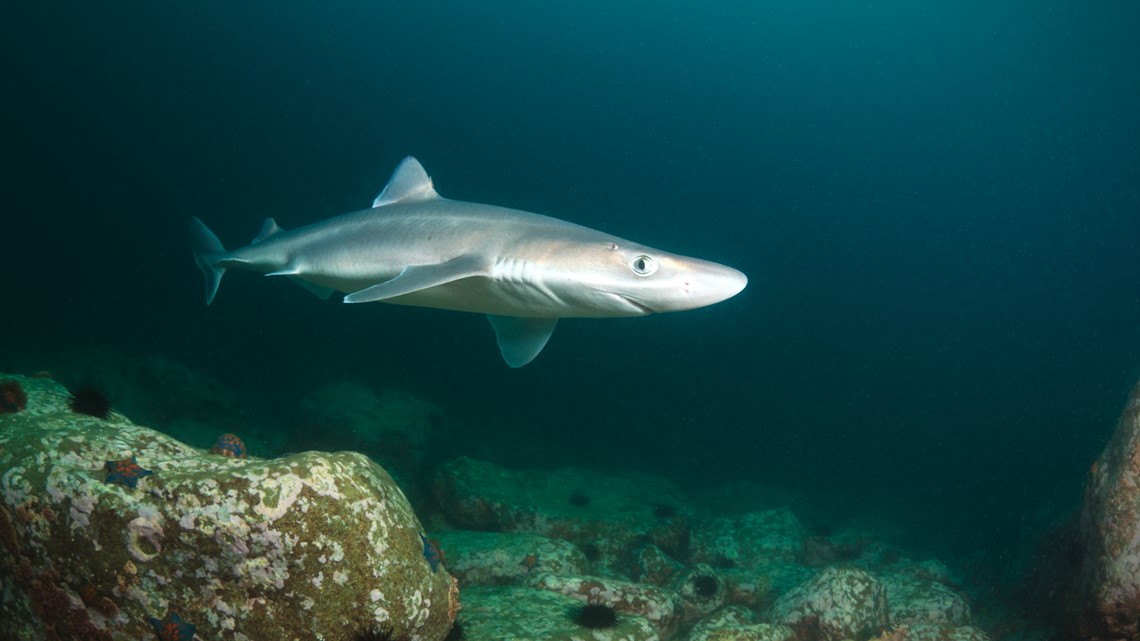WASHINGTON — QUESTION:
Are sharks being used in COVID-19 vaccines?
ANSWER:
A few vaccine manufacturers have included molecules from shark livers in their vaccines.
SOURCES:
- Spokespeople from GSK, Medicago, Seqirus and Pfizer
- Laurel Irvine: Development and Communications Director for Shark Allies
- Andrew Pekosz: An immunology and Microbiology Professor- Johns Hopkins University Bloomberg School of Public Health
- Dr. Joel Ernst: A professor at the University of California, San Francisco
- Food & Drug Administration: Pfizer Emergency Use Authorization Memo, Moderna Emergency Use Authorization Memo
PROCESS:
Across the country, people are talking about the COVID19 vaccine and what’s in it. Like this petition circulating online, with more than 125,000 signatures.
It says “Stop Using Sharks in COVID-19 Vaccine.”
So we're Verifying: are sharks being used in COVID-19 vaccines?
Let's start with the petition organized by conservation group, Shark Allies.
The petition claims that as of November 3, five of the vaccines in development contain something called shark “squalene."


“Squalene is a type of lipid or fat molecule," Andrew Perkosz, Professor of Microbiology and Immunology at Johns Hopkins University Bloomberg School of Public Health, said.
"It's a compound that's present in sharks and other marine mammals, and so that's usually where it's harvested," he said, explaining that's because it's typically the most cost-effective source of squalene.
So, why add squalene to vaccines?
Pekosz says squalene can help stimulate a stronger immune response while at the same time using less of the actual vaccine.
“Meaning if you can get two or three doses instead of just one, then you can immunize a lot more people than you normally could," he said.
Dr. Joel Ernst, a professor of medicine at the University of California, San Francisco says it helps trigger your immune response.
"Squalene is a component of some vaccines, because it is known to act as an adjuvant, which is a compound that alerts the immune system that something foreign (that is, not an ordinary part of us), such as a virus, or a viral antigen in a vaccine, is nearby," he said. "Adjuvants increase the magnitude of immune responses (T cells and antibodies) and can also guide the immune response in the desired direction so that it provides effective protection from infection and disease."
What companies are using squalene?
The petition lists five companies using shark-derived squalene, which Shark Allies says they pulled from a WHO database. Our Verify researchers could only find two organizations on the list that appeared to be using squalene.


Shark Allies also provided a list to our Verify researchers which detailed nine entities using squalene, three of whom are partnered on vaccine development.
We contacted five of them and got responses from three: Seqirus, Medicago and GSK.
Medicago told us they get their “adjuvant” (a.k.a. something added to a vaccine to make it more potent) from the company GSK.
GSK and Seqirus also responded and told the Verify team they use shark liver oil. And both say that squalene is a by-product of the fishing industry rather than the main driver.
"The squalene commonly used in the pharmaceutical industry is extracted from fish oil (liver) as a by-product from fishing different shark species, which are typically caught for other purposes," a GSK spokesperson said in a statement. "The amount of squalene that will be needed for GSK to manufacture intended doses of its adjuvant system represents a very small proportion of the animal-derived squalene used worldwide – the vast majority of squalene produced is used by other industries including the cosmetic industry."
Are there any alternatives to squalene?
GSK says they are exploring other alternatives for squalene but said the research into suitable alternatives "is on-going and will not result in other options within the timeframe of the COVID-19 pandemic."
Seqirus said that their supplier sources squalene from species that are not internationally protected by the Convention on International Trade in Endangered Species of Wild Fauna and Flora (CITES).
"It’s important to note that our supplier sources marine squalene from non-CITES species and the squalene we use is manufactured in a way that is respectful of biodiversity and the environment," a Seqirus spokesperson said.
Shark Allies says their goal is to promote more research on alternatives to shark-derived squalene.
"Our campaign is about asking the companies to test alternatives, not necessarily to say that they should jump on existing alternatives immediately, but to consider it in their R+D and testing going forward," Laurel Irvine, development and communication director for Shark Allies told the VERIFY team by email. "We are raising awareness."
Do Pfizer and Moderna use squalene?
As for the two COVID vaccines currently approved for emergency use in the US, Pfizer and Moderna, we looked up the ingredients published on the FDA’s website, and they do not include shark-derived squalene.
"There is no human or animal products of any sort contained in the vaccine," a Pfizer spokesperson said. "This is a synthetically designed vaccine."
Pekosz explained that not all vaccines need squalene.
“In some cases, the vaccine itself is already pretty good and inducing an immune response," he said. "...squalene is also limiting in terms of how much of it is available, and so some companies simply try to forego using squalene."
So we can Verify, yes, there are a few vaccines in development that include molecules harvested from shark liver.

